Walmart wants robots in stores. Target doesn’t.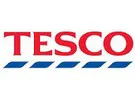 The "Auto-S," Walmart's shelf-scanning robot, moves around aisles and identifies which items are low or out of stock. Walmart and Target are taking different approaches to adding robots in stores, a split that will have an impact on the companies’ massive workforces and shape the future of automation in retail. Walmart’s is adding robots to help it increase worker productivity and control costs. Walmart has around one million hourly workers in its stores. However, Target has eschewed a robot-worker strategy. The retailer has added self-checkout and automatic cash-counting machines to hundreds of stores in recent years. But Target CEO Brian Cornell said his chain will not bring on the type of robots Walmart has deployed in stores.
The "Auto-S," Walmart's shelf-scanning robot, moves around aisles and identifies which items are low or out of stock. Walmart and Target are taking different approaches to adding robots in stores, a split that will have an impact on the companies’ massive workforces and shape the future of automation in retail. Walmart’s is adding robots to help it increase worker productivity and control costs. Walmart has around one million hourly workers in its stores. However, Target has eschewed a robot-worker strategy. The retailer has added self-checkout and automatic cash-counting machines to hundreds of stores in recent years. But Target CEO Brian Cornell said his chain will not bring on the type of robots Walmart has deployed in stores.
Source: www.Q13fox.com
Pensa Systems raises $10 million to deploy inventory-tracking drones in retail stores Figuring out which products are in stock can be a time-consuming task. It’s also prone to errors, as employees regularly misplace an estimated one in ten items. Drones could hold to answer to the inventory tracking problem, says Pensa Systems co-founder Richard Schwartz. The Austin startup announced to close of a $10 million follow-on seed funding round, raising the total to $17.2 million. “It is now clear that the combination of AI and vision technology will have an enormous impact on retail stores operations.” Saud McCann, a veteran of grocery retail businesses.
Figuring out which products are in stock can be a time-consuming task. It’s also prone to errors, as employees regularly misplace an estimated one in ten items. Drones could hold to answer to the inventory tracking problem, says Pensa Systems co-founder Richard Schwartz. The Austin startup announced to close of a $10 million follow-on seed funding round, raising the total to $17.2 million. “It is now clear that the combination of AI and vision technology will have an enormous impact on retail stores operations.” Saud McCann, a veteran of grocery retail businesses.
Source: www.venturebeat.com
Kohl's & Home Depot forecasts quell pre-holiday cheer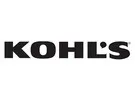 Retail heavyweights Kohl’s Corp and Home Depot Inc sent a shiver through Wall Street on Tuesday, lodging weak results and annual forecasts that cast more doubt on the health of the U.S. consumer ahead of the crucial holiday shopping season. Major chains have launched a raft of early promotions ahead of the Thanksgiving and Christmas period, which is six days shorter this year than last, worried about the impact of cut-throat competition and the shift to disruptive online players. The ongoing U.S.-China trade war has also raised the cost of imported goods for many sellers as they fight to keep prices competitive, putting pressure on margins.
Retail heavyweights Kohl’s Corp and Home Depot Inc sent a shiver through Wall Street on Tuesday, lodging weak results and annual forecasts that cast more doubt on the health of the U.S. consumer ahead of the crucial holiday shopping season. Major chains have launched a raft of early promotions ahead of the Thanksgiving and Christmas period, which is six days shorter this year than last, worried about the impact of cut-throat competition and the shift to disruptive online players. The ongoing U.S.-China trade war has also raised the cost of imported goods for many sellers as they fight to keep prices competitive, putting pressure on margins.
Source: www.Reuters.com
Walmart CEO Doug McMillon: ‘We could go away at any minute’ Walmart is constantly evolving to avoid dying off, as plenty of other retailers have, according to the company’s chief executive officer. “Walmart is not arrogant,” CEO Doug McMillon said at CNBC’s Evolve Summit in Los Angeles on Tuesday morning. “We could go away at any minute. I think most of us act that way every day. If you’re not willing to fail — and we are failing at some things — you’re going to go away.” McMillon went on to say that, at Walmart, “everything is open to change. Retailers come and go, it’s really simple: If you’re not meeting the wants and needs of the customer, you’re done. There’s not a lot of loyalty here.”
Walmart is constantly evolving to avoid dying off, as plenty of other retailers have, according to the company’s chief executive officer. “Walmart is not arrogant,” CEO Doug McMillon said at CNBC’s Evolve Summit in Los Angeles on Tuesday morning. “We could go away at any minute. I think most of us act that way every day. If you’re not willing to fail — and we are failing at some things — you’re going to go away.” McMillon went on to say that, at Walmart, “everything is open to change. Retailers come and go, it’s really simple: If you’re not meeting the wants and needs of the customer, you’re done. There’s not a lot of loyalty here.”
Source: www.cnbc.com
Kroger to launch in-store produce farms 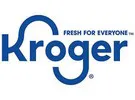 Kroger will bring miniature hydroponic produce farms to its stores this month, according to a company release. The produce farms, built and maintained by Infarm, will launch at two of Kroger’s QFC locations in Bellevue and Kirkland, Washington, with plans for 13 more locations by March 2020, according to Bloomberg. Infarm will use hydroponic technology to grow produce on-site at the QFC stores, removing the need for transportation and storage of parsley, cilantro and other greens. Retailers pay Infarm a service fee for the produce itself as well as planting and preparing it for sale, Bloomberg reported. Kroger says its in-store farms with Infarm will produce a more eco-friendly product and the freshest seasonal produce.
Kroger will bring miniature hydroponic produce farms to its stores this month, according to a company release. The produce farms, built and maintained by Infarm, will launch at two of Kroger’s QFC locations in Bellevue and Kirkland, Washington, with plans for 13 more locations by March 2020, according to Bloomberg. Infarm will use hydroponic technology to grow produce on-site at the QFC stores, removing the need for transportation and storage of parsley, cilantro and other greens. Retailers pay Infarm a service fee for the produce itself as well as planting and preparing it for sale, Bloomberg reported. Kroger says its in-store farms with Infarm will produce a more eco-friendly product and the freshest seasonal produce.
Source: www.grocerydive.com
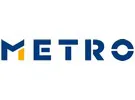 Metro says restructuring to cost up to €80m
Metro says restructuring to cost up to €80m
Metro said it expected the restructuring of its central administration to result in one-off expenses of up to €80 million ($88.62 million) in the 2019/20 fiscal year, the German wholesaler said on Tuesday. Metro, which had already announced it was looking into efficiency measures in September, said details still had to be fleshed out in consultation with employee representatives, management and staff. It said the costs would be offset by long-term savings in the mid double-digit million range, of which a figure in the low double-digit millions would be realised in the current financial year.
Source: https://www.esmmagazine.com/
CPG advertisers are seeking data relationships with retailers, to help ward off Amazon Consumer packaged goods companies are trying to prevent grocery from becoming yet another online market dominated by a single player. While these efforts take many forms, many have a common theme: convince retailers to share more data with them. Amazon doesn’t yet dominate the grocery category the way it does some others, but it’s fast becoming a destination for the types of food and drink that people typically visit bricks-and-mortar supermarkets for. (Online grocery sales were up 40% year over year in 2018, per eMarketer.) That growth and increased leverage is bad news for CPG companies, and for supermarkets, which struggle to compete in the low-margin e-commerce world. Even Walmart, the world’s largest brick-and-mortar retailer, expects to lose more than $1 billion for its e-commerce business this year, per Vox.
Consumer packaged goods companies are trying to prevent grocery from becoming yet another online market dominated by a single player. While these efforts take many forms, many have a common theme: convince retailers to share more data with them. Amazon doesn’t yet dominate the grocery category the way it does some others, but it’s fast becoming a destination for the types of food and drink that people typically visit bricks-and-mortar supermarkets for. (Online grocery sales were up 40% year over year in 2018, per eMarketer.) That growth and increased leverage is bad news for CPG companies, and for supermarkets, which struggle to compete in the low-margin e-commerce world. Even Walmart, the world’s largest brick-and-mortar retailer, expects to lose more than $1 billion for its e-commerce business this year, per Vox.
Source: www.digiday.com
Lidl offers one-hour deliveries in Barcelona and Valencia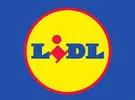 Lidl customers in Barcelona and Valencia are now able to order its catalogue online and receive orders within an hour. The discount supermarket chain is expanding its collaboration with Lola Market to the two cities. Lola Market is an online shopping platform for food, using a team of shoppers who go to stores and fulfil customer’s orders. Customers simply access the platform through its website or app, then enter their delivery postcode, select a store and choose the time slot they want to receive the order in.
Lidl customers in Barcelona and Valencia are now able to order its catalogue online and receive orders within an hour. The discount supermarket chain is expanding its collaboration with Lola Market to the two cities. Lola Market is an online shopping platform for food, using a team of shoppers who go to stores and fulfil customer’s orders. Customers simply access the platform through its website or app, then enter their delivery postcode, select a store and choose the time slot they want to receive the order in.
Source: www.internetretailing.net
Amazon bursts onto Japan's emerging Black Friday scene Japanese retailers are gearing up for Black Friday sales this week, including an initial foray by Amazon Japan, hoping the event will give consumer spending a much-needed shot in the arm after last month's consumption tax increase. Amazon.com, already a big Black Friday player elsewhere, seeks to use the event to penetrate further into Japan. The company has a substantial presence in the 16 trillion yen ($147 billion) e-commerce market here, with Japanese sales up 16% last year to $13.8 billion, but it still constitutes only a fraction of the country's 145 trillion yen retail market. Aeon -- Japan's biggest retailer and one of the first in the country to jump on the Black Friday concept three years ago -- is stepping up its game. Aeon Retail will boost the number of items with 50% discounts by half from last year during its sale, which runs through Tuesday. Its revenue during the sale period jumped more than 15% last year from 2017.
Japanese retailers are gearing up for Black Friday sales this week, including an initial foray by Amazon Japan, hoping the event will give consumer spending a much-needed shot in the arm after last month's consumption tax increase. Amazon.com, already a big Black Friday player elsewhere, seeks to use the event to penetrate further into Japan. The company has a substantial presence in the 16 trillion yen ($147 billion) e-commerce market here, with Japanese sales up 16% last year to $13.8 billion, but it still constitutes only a fraction of the country's 145 trillion yen retail market. Aeon -- Japan's biggest retailer and one of the first in the country to jump on the Black Friday concept three years ago -- is stepping up its game. Aeon Retail will boost the number of items with 50% discounts by half from last year during its sale, which runs through Tuesday. Its revenue during the sale period jumped more than 15% last year from 2017.
Source: www.asia.nikkei.com
